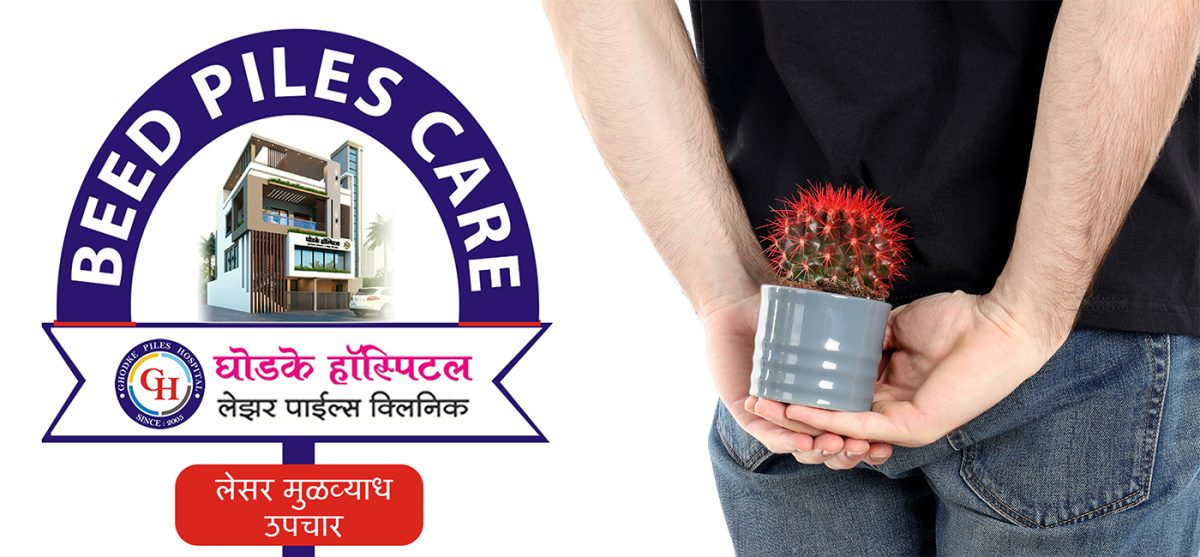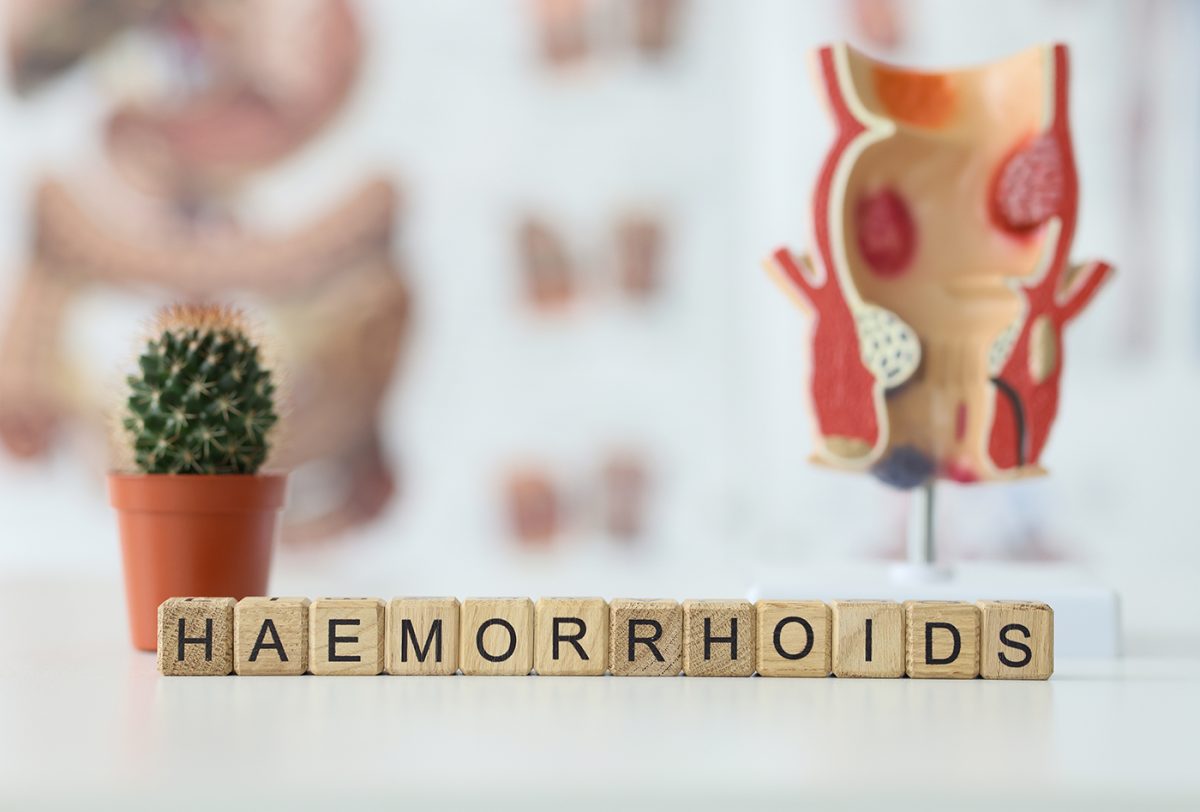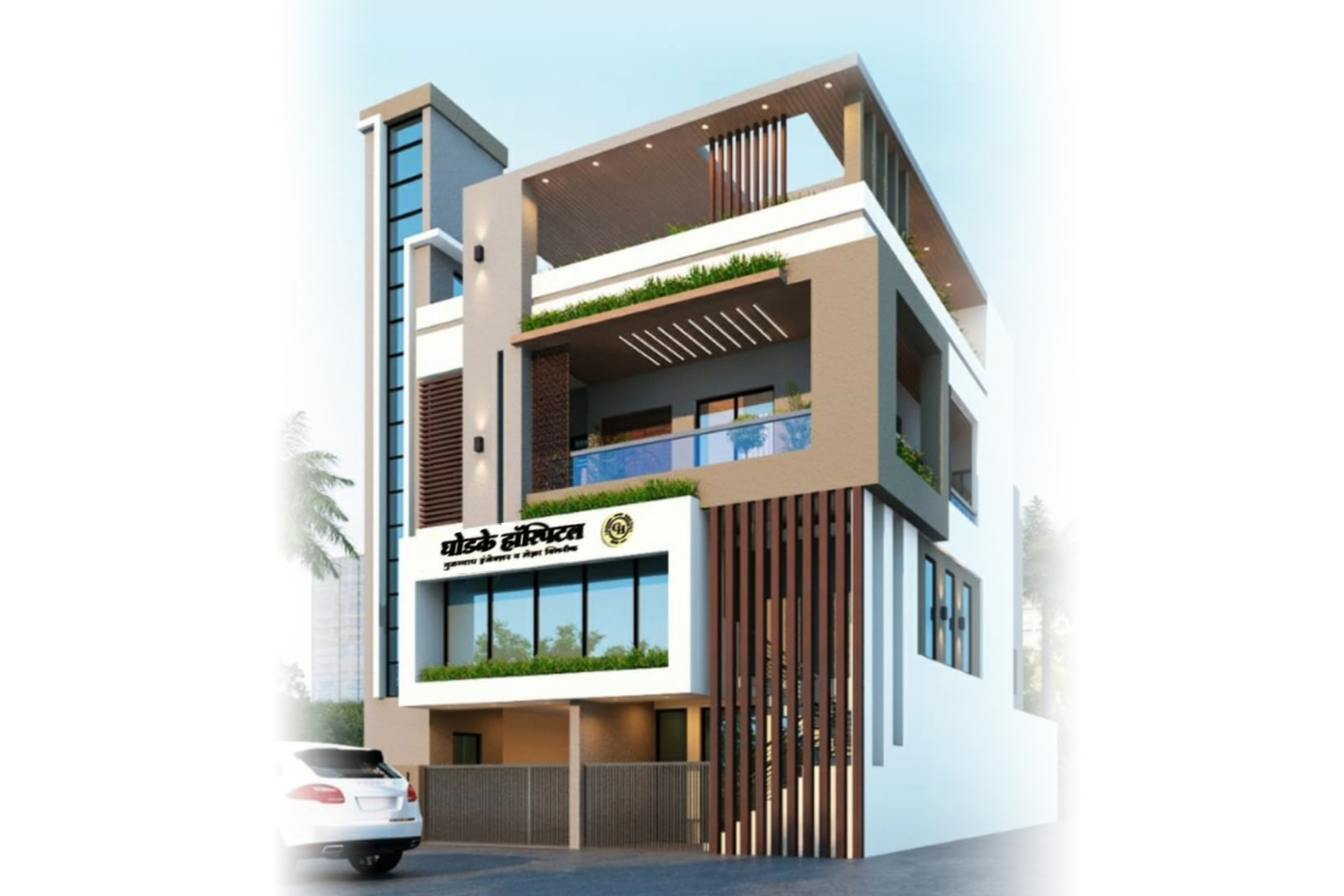Introduction
Hemorrhoids are a common yet uncomfortable condition that many people experience at some point in their lives. Understanding the factors that increase the risk of developing hemorrhoids is crucial for prevention and management. This article explores the various risk factors associated with hemorrhoids, including pregnancy, age, obesity, and heredity, and provides practical advice for reducing these risks. For professional treatment, consider visiting Ghodke Piles Hospital in Beed.
What Are Hemorrhoids?
Hemorrhoids, also known as piles, are swollen veins in the lower rectum and anus. They can be internal, located inside the rectum, or external, under the skin around the anus. Common symptoms include pain, itching, and rectal bleeding, which can range from mild discomfort to severe pain. While hemorrhoids are generally not life-threatening, they can cause significant discomfort and inconvenience.
Suffering from piles? Discover the most advanced laser treatment in Beed – Book your consultation at Ghodke Piles Hospital today!Common Risk Factors for Hemorrhoids
Several factors contribute to the development of hemorrhoids. These include pregnancy, age, obesity, heredity, chronic constipation or diarrhea, a sedentary lifestyle, and poor dietary habits. Understanding these risk factors can help in taking preventive measures to avoid or manage hemorrhoids effectively.
Pregnancy is a major risk factor for hemorrhoids. As the uterus expands, it puts pressure on the pelvic veins and the inferior vena cava, which can slow down the return of blood from the lower body, increasing pressure on the veins below the uterus and leading to hemorrhoids. Hormonal changes during pregnancy can also contribute to the development of hemorrhoids by relaxing the veins and causing them to swell. Learn more >>
The growing uterus exerts pressure on the veins in the rectal area, causing them to enlarge and swell. Additionally, constipation, which is common during pregnancy due to hormonal changes, can lead to straining during bowel movements, further increasing the risk of hemorrhoids.
- Maintain a high-fiber diet: Eating plenty of fruits, vegetables, and whole grains can help prevent constipation.
- Stay hydrated: Drinking plenty of water keeps stools soft and easier to pass.
- Exercise regularly: Physical activity can help prevent constipation and reduce the pressure on the veins.
- Avoid prolonged sitting or standing: Changing positions frequently can reduce the pressure on the rectal veins.
Don’t let hemorrhoids control your life – Get expert care from Beed’s trusted piles specialist now!Age-Related Risk: Being Above 50 Years
As people age, the tissues that support the veins in the rectum and anus can weaken and stretch, making them more susceptible to becoming swollen and forming hemorrhoids. Those above 50 are particularly at risk, as the natural aging process makes the veins more vulnerable.
Why Age is a Significant Risk Factor
Aging leads to a loss of muscle tone and elasticity in the rectal area, which can result in the veins becoming more prone to swelling. Additionally, as people age, they may become more sedentary, which can contribute to constipation and increased pressure on the rectal veins.
Preventative Measures for Older Adults
- Regular exercise: Staying active can help maintain muscle tone and promote healthy bowel movements.
- Dietary adjustments: Incorporating more fiber into the diet can help prevent constipation.
- Routine health checks: Regular medical check-ups can help detect and manage any emerging health issues, including hemorrhoids.
Looking for permanent relief from piles? Visit Ghodke Hospital for painless, non-surgical treatment options that work!Obesity and Hemorrhoids
Carrying excess weight, especially in the abdominal area, can increase the pressure on the pelvic veins and the lower rectum, leading to hemorrhoids. Obesity is a significant risk factor due to the added pressure on the veins and the likelihood of related conditions such as constipation.
The Link Between Excess Weight and Hemorrhoids
Obesity leads to increased abdominal pressure, which affects blood flow and can cause the veins in the rectum to swell. This is exacerbated by the fact that obese individuals may have a diet low in fiber and high in processed foods, leading to constipation.
Strategies to Reduce the Risk
- Weight management: Losing weight through a balanced diet and regular exercise can significantly reduce the risk of hemorrhoids.
- High-fiber diet: Including fiber-rich foods helps prevent constipation and reduce strain during bowel movements.
- Regular physical activity: Exercise not only helps with weight loss but also promotes regular bowel movements.
Say goodbye to pain, itching, and bleeding – Explore the best piles treatment in Beed at Ghodke Piles Hospital!Heredity: Family History of Hemorrhoids
Genetics can play a role in the development of hemorrhoids. If you have a family history of hemorrhoids, you may be more likely to develop them yourself. This genetic predisposition can affect the strength of the vein walls and the ability to manage venous pressure effectively.
Genetic Predisposition to Hemorrhoids
If your parents or other close relatives have had hemorrhoids, you may inherit a tendency for weak vein walls or other factors that increase your risk.
How to Manage Inherited Risk
- Be proactive with prevention: Adopt a healthy lifestyle that includes a high-fiber diet, regular exercise, and proper hydration.
- Regular check-ups: Early detection can help manage symptoms and prevent the condition from worsening.
Beed’s #1 Choice for Hemorrhoid Treatment – Call Ghodke Hospital now and feel the relief you deserve!Additional Contributing Factors
In addition to the primary risk factors discussed, other elements can contribute to the development of hemorrhoids:
- Chronic constipation or diarrhea: Both conditions can lead to straining during bowel movements, increasing the risk of hemorrhoids.
- Sedentary lifestyle: Lack of physical activity can contribute to constipation and increased pressure on the rectal veins.
- Poor diet: Diets low in fiber and high in processed foods can lead to constipation, which is a major cause of hemorrhoids.
Need fast, effective piles relief? Schedule your appointment with the best piles doctor in Beed today!How to Prevent Hemorrhoids
Preventing hemorrhoids involves making lifestyle changes that promote healthy bowel habits and reduce strain on the rectal veins.
Diet and Lifestyle Changes
- Increase fiber intake: Aim for at least 25-30 grams of fiber daily from fruits, vegetables, and whole grains.
- Stay hydrated: Drink plenty of water throughout the day.
- Exercise regularly: Engage in physical activity to promote regular bowel movements and reduce pressure on the veins.
Proper Bowel Habits
- Avoid straining: Take your time during bowel movements and avoid straining.
- Don’t delay: Respond promptly to the urge to have a bowel movement to prevent hard stools.
- Use the restroom regularly: Establish a routine for bowel movements to help maintain regularity.
Home Remedies for Hemorrhoid Relief
If you’re already dealing with hemorrhoids, several home remedies can help relieve discomfort and promote healing.
Warm Baths and Sitz Baths
Soaking in a warm bath or sitz bath for 15-20 minutes several times a day can help reduce swelling and alleviate discomfort.
Over-the-Counter Treatments
Creams, ointments, and suppositories available over-the-counter can help soothe symptoms such as pain and itching.
Dietary Changes
Increasing your fiber intake and staying hydrated can help soften stools and reduce straining during bowel movements.
When to See a Doctor
While hemorrhoids can often be managed at home, certain symptoms may require medical attention.
Symptoms That Require Medical Attention
- Excessive bleeding: If you notice significant bleeding during bowel movements.
- Severe pain: If the pain becomes intense and unmanageable with home remedies.
- Prolapse: If the hemorrhoids protrude from the anus and cannot be pushed back in.
Possible Complications if Untreated
Untreated hemorrhoids can lead to complications such as anemia (from chronic blood loss), thrombosed hemorrhoids, or severe pain. If you’re facing any of these issues, it’s advisable to consult a specialist at Ghodke Piles Hospital in Beed.
Treatment Options for Hemorrhoids
If home remedies aren’t effective, medical treatments may be necessary. Ghodke Piles Hospital offers a range of advanced treatment options to ensure effective relief.
Non-Surgical Treatments
- Rubber band ligation: A rubber band is placed around the base of the hemorrhoid to cut off blood supply, causing it to wither and fall off.
- Sclerotherapy: A chemical solution is injected into the hemorrhoid, causing it to shrink.
- Infrared coagulation: A device uses infrared light to shrink hemorrhoids.
Surgical and Advanced Interventions
- Hemorrhoidectomy: The surgical removal of hemorrhoids.
- Stapled hemorrhoidopexy: A procedure that cuts off blood flow to the hemorrhoid tissue.
- Laser Treatment: A modern, minimally invasive procedure that uses laser energy to shrink hemorrhoids with precision and minimal discomfort. This option is highly effective and offers a quicker recovery time.
To learn more about laser treatment for piles, visit Ghodke Piles Hospital and consult with their experienced specialists.
Myths and Facts About Hemorrhoids
There are many misconceptions about hemorrhoids that can lead to confusion and improper treatment.
Common Misconceptions
- Myth: Only older people get hemorrhoids.
Fact: Hemorrhoids can occur at any age, though they are more common in older adults. - Myth: Spicy foods cause hemorrhoids.
Fact: While spicy foods can irritate hemorrhoids, they don’t cause them. - Myth: Sitting on cold surfaces causes hemorrhoids.
Fact: There’s no evidence to suggest that cold surfaces lead to hemorrhoids; it’s prolonged sitting, regardless of temperature, that can contribute to their development.
Debunking Myths with Facts
Understanding the true causes and treatments of hemorrhoids can help manage the condition more effectively. For reliable information and advanced treatments, consider consulting the specialists at Ghodke Piles Hospital.
Living with Hemorrhoids
If you have hemorrhoids, managing the condition involves making long-term lifestyle adjustments.
Managing Symptoms
- Regular exercise: Helps maintain healthy bowel movements and reduce pressure on the veins.
- Healthy diet: A diet rich in fiber and hydration can prevent constipation.
- Proper hygiene: Keeping the anal area clean and dry can prevent irritation.
Long-Term Care and Lifestyle Adjustments
Incorporating healthy habits into your daily routine can help prevent the recurrence of hemorrhoids. Regular check-ups at Ghodke Piles Hospital can also help manage your condition and prevent complications.
Conclusion
Hemorrhoids are a common condition that can be managed and prevented by understanding the various risk factors. By adopting a healthy lifestyle, including a balanced diet, regular exercise, and proper hydration, you can reduce your risk and manage symptoms effectively. Whether you are pregnant, over 50, obese, or have a family history of hemorrhoids, taking proactive steps can help maintain your health and comfort.
If you’re dealing with persistent hemorrhoids, advanced treatment options, including laser therapy, are available at Ghodke Piles Hospital. Their team of specialists is dedicated to providing effective and compassionate care.
FAQs
1. What are the early signs of hemorrhoids?
Early signs include itching, discomfort, and minor bleeding during bowel movements.
2. Can hemorrhoids go away on their own?
In some cases, hemorrhoids can resolve on their own, especially with proper care and lifestyle changes.
3. Is surgery the only option for severe hemorrhoids?
No, there are non-surgical treatments available, but surgery may be recommended for severe or persistent cases. Laser treatment is also a minimally invasive option available at Ghodke Piles Hospital.
4. Are there foods that can help prevent hemorrhoids?
Yes, high-fiber foods such as fruits, vegetables, and whole grains can help prevent constipation and reduce the risk of hemorrhoids.
5. How do I know if I have hemorrhoids or something else?
If you experience symptoms like bleeding, pain, or itching, consult a healthcare provider for a proper diagnosis. You can also visit Ghodke Piles Hospital for a thorough evaluation.
Say Goodbye to Hemorrhoids with Ghodke Piles Hospital!
Tired of dealing with the pain and discomfort of hemorrhoids? It’s time to take control and get your life back! At Ghodke Piles Hospital, we offer cutting-edge, minimally invasive laser treatments that provide fast, effective relief.
Why Choose Ghodke Piles Hospital?
- Expert Specialists: Our highly trained doctors offer personalized care tailored to your needs.
- Advanced Technology: We utilize the latest laser technology for safe, quick, and virtually painless treatment.
- Patient-Centered Care: We’re committed to making your experience as comfortable and stress-free as possible.
Don’t Suffer in Silence—Act Now!
Visit Us: Ghodke Hospital, Behind Shantai Hotel, Jalna Road, Beed, Maharashtra – 431122
Call Us Today: 084593-13196 / 02442-222220
Learn More: ghodkepileshospital.in
From diagnosis to cure – Trust Ghodke Hospital for complete piles and digestion care under one roof!




